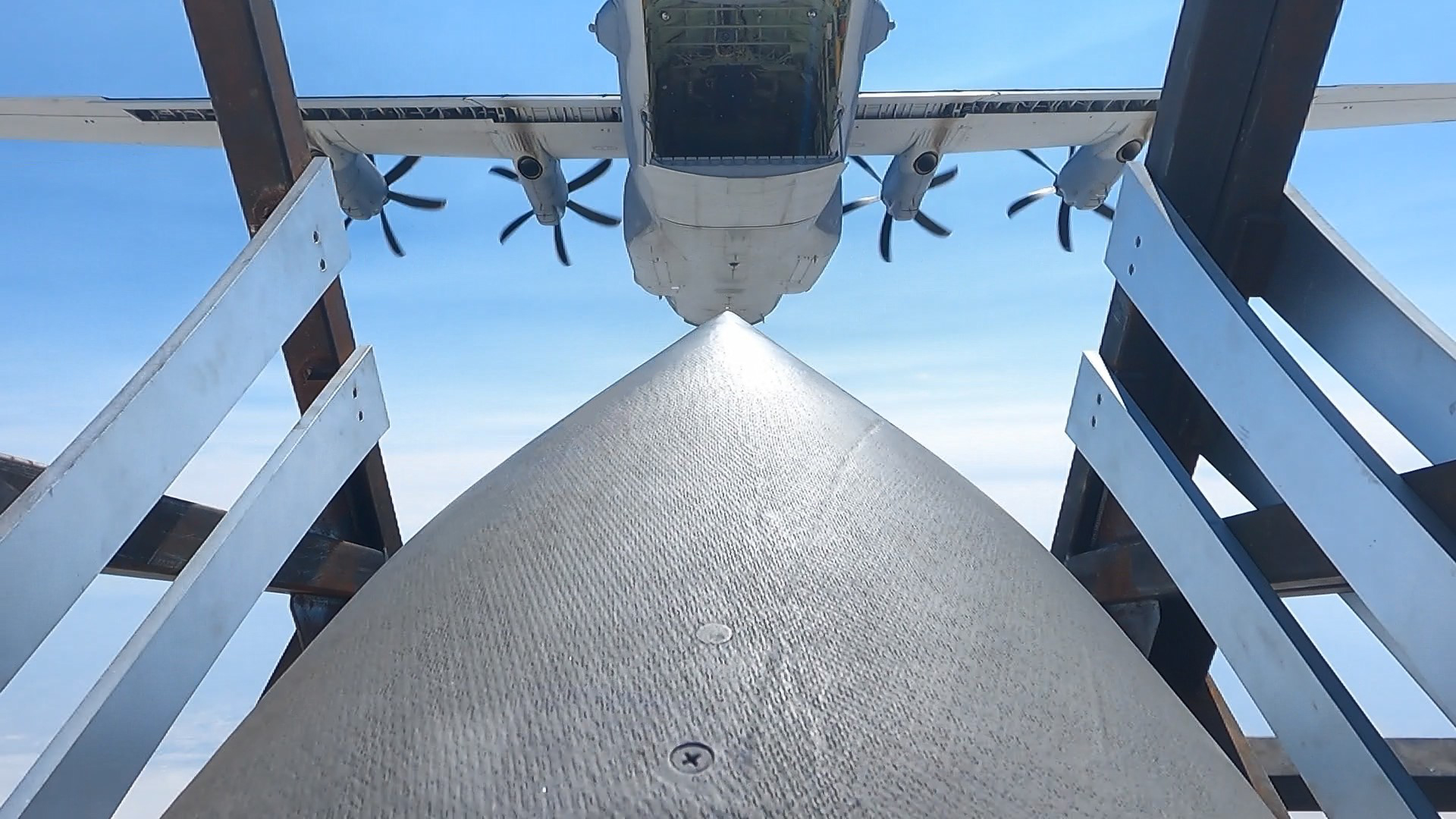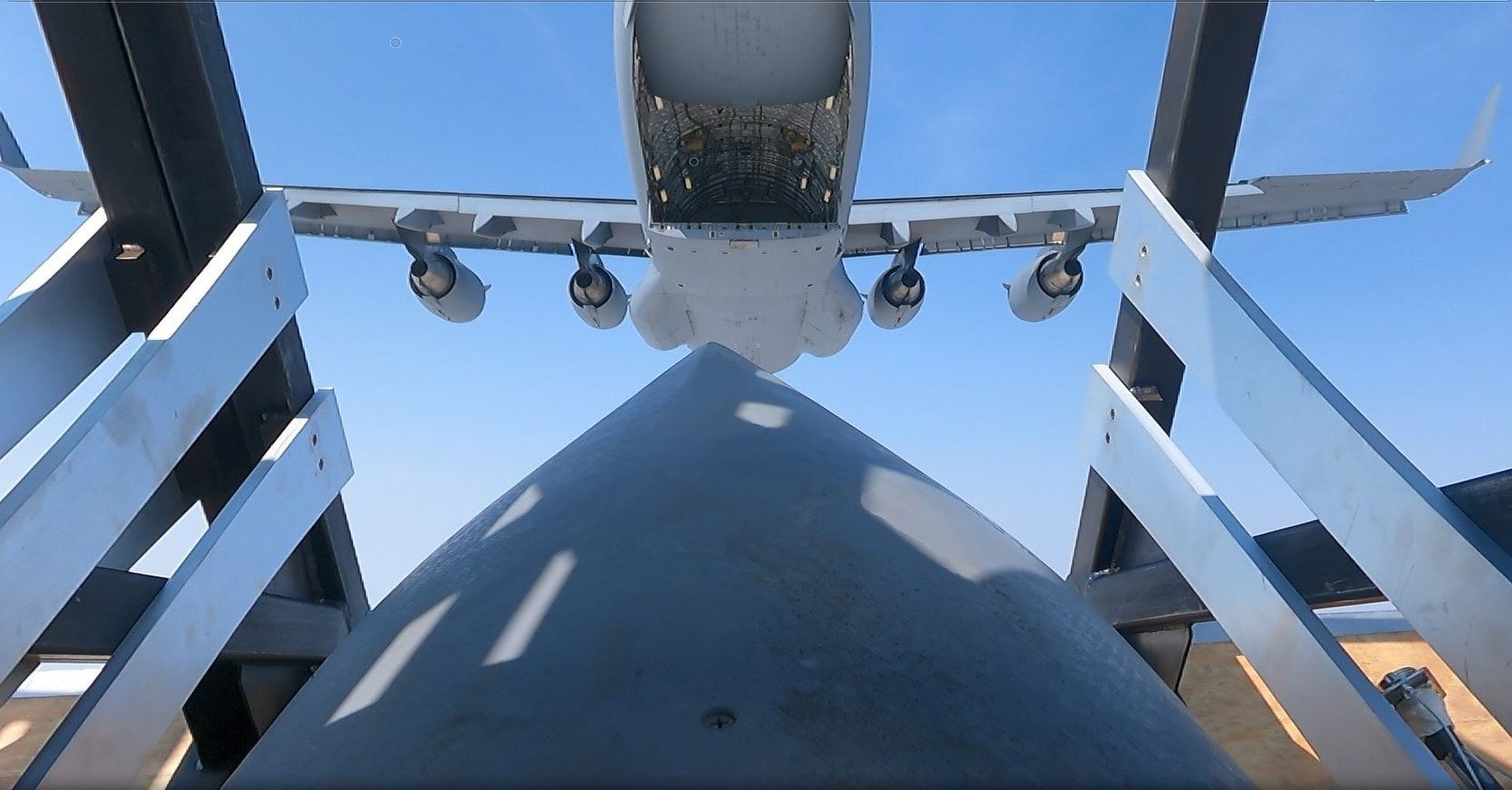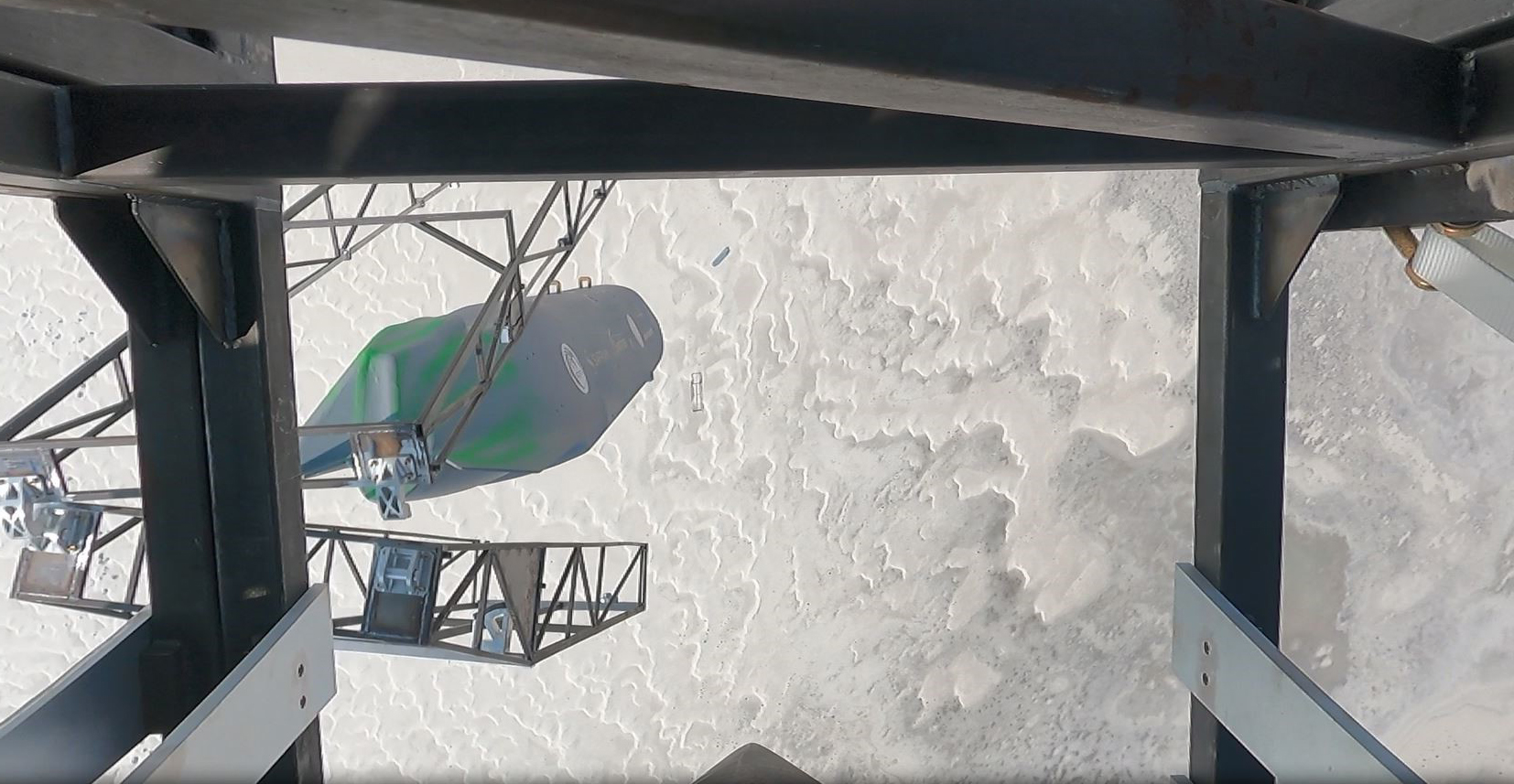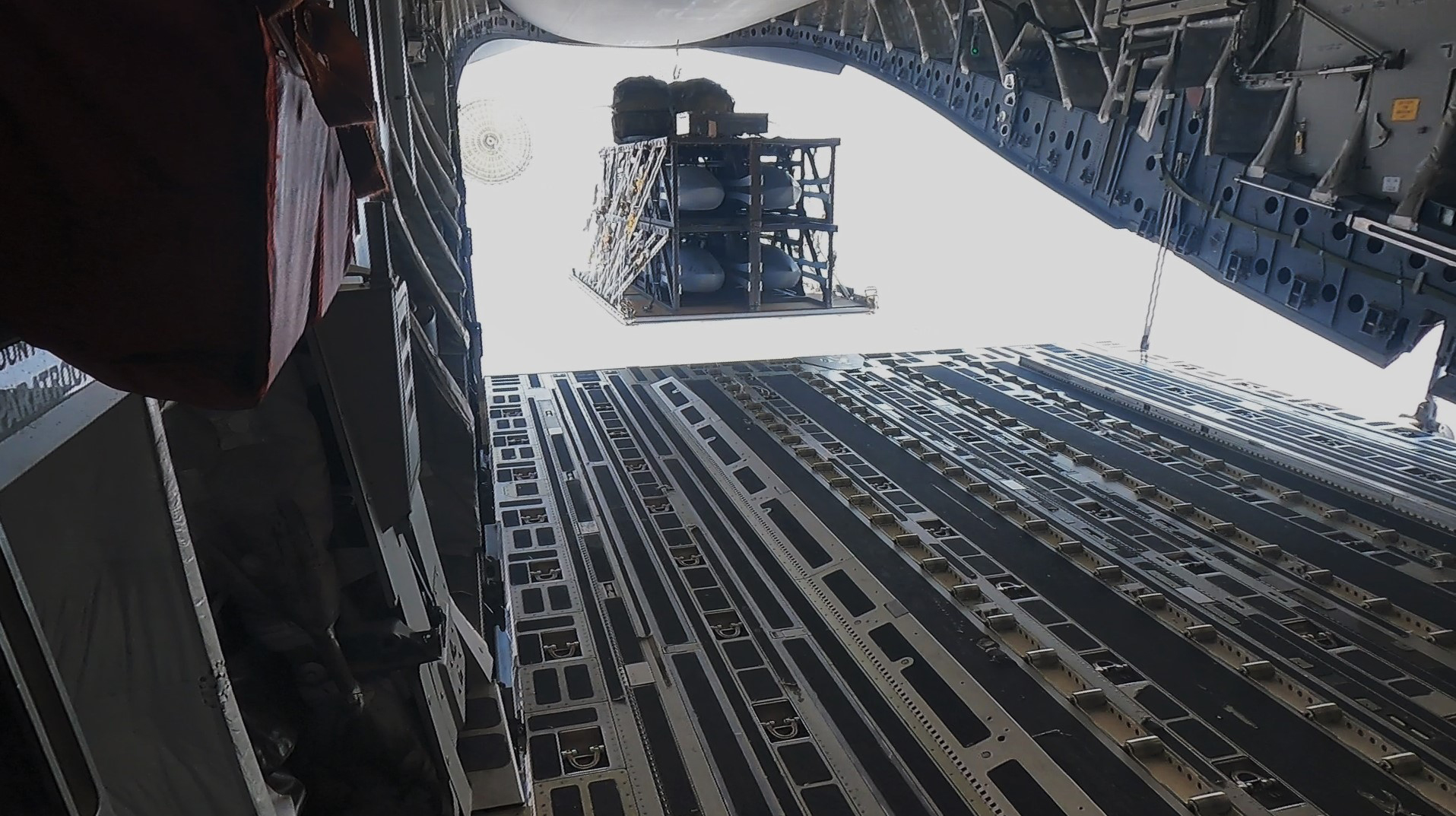Rapid Dragon conducts first system-level demonstration of palletized munitions
EGLIN AIR FORCE BASE, Fla. (AFRL) – The Air Force Rapid Dragon Program, a fast-paced experimentation campaign led by the Air Force Strategic Development Planning and Experimentation office, has completed two more successful demonstrations during its first system-level flight tests of this potential new capability at White Sands Missile Range, New Mexico in July 2021.
The tests assessed the operational utility of delivering long-range strike weapons en masse from military cargo aircraft, and showcased the ability for a Beyond-Line-of-Sight Command and Control node to transfer Joint Air-to-Surface Standoff Missile-Extended Range cruise missile targeting data to airborne Air Force Special Operations Command and Air Mobility Command aircraft.
The SDPE office, along with its partners, Air Force Futures, Air Force Special Operations Command, Air Mobility Command, U.S. Special Operations Command Det 1, and the 412th Test Wing, completed its first system-level flight test on EC-130SJ and C-17A aircraft.
The aircraft-agnostic Battle Management System onboard the aircraft received new targeting data and uploaded it to a JASSM-ER emulator. The JASSM-ER emulator successfully demonstrated the ability to retarget missiles while the aircraft was airborne. This set in motion the airdrop of the palletized weapon deployment system from each aircraft. While stabilized and descending under-chute, this new deployment system sequentially released multiple JASSM-ER mass simulants and demonstrated the ability to safely de-conflict the airspace between weapon release intervals. This capability can provide combatant commanders greater flexibility to respond in dynamic operational environments.
These jettison tests accomplished several first-time events: a successful high altitude airdrop using a modular deployment box; a successful jettison of multiple weapons from the palletized weapon deployment system; and weapon de-confliction verification through the clean separation of JASSM-ER simulants from the deployment system. An operational aircrew from the 492 Special Operations Training Group Detachment 2 and a test aircrew from the 418th Flight Test Squadron conducted the airdrops in an operationally-relevant environment, demonstrating the feasibility of a palletized delivery of long-range strike weapons. The Naval Surface Warfare Center-Dahlgren; Standoff Munitions Application Center; Lockheed Martin Missiles and Fire Control; Systima Technologies; Safran Electronics & Defense, Parachutes USA; and R4 Integration, Inc. were integral to the success of this first-ever, end-to-end, system-level demonstration.
The Rapid Dragon Program will complete a live-fire test with a production JASSM-ER from a cargo aircraft before the end of 2021. These tests will inform potential design refinement and accelerate the maturation of these systems for further capability experimentation and rapid fielding. A follow-on program will look at expanding the Rapid Dragon portfolio to include additional weapon systems and multiple effects capabilities.
Rapid Dragon could ultimately lead to a roll-on, roll-off system that transforms mobility aircraft into lethal strike platforms that augment the strike capacity of tactical fighters and strategic bombers. The retargeting methodology used is transferrable to other strike and cargo platforms, potentially increasing lethality of all JASSM-capable strike assets. These new capabilities can provide combatant commanders additional flexibility to prosecute targets en-masse in the high-end fight, thus changing the adversary’s calculus in an increasingly complicated and dynamic near-peer conflict.
SDPE’s Rapid Dragon Program is progressing from concept to powered-flight within 24 months. From a modular deployment box design to a flight test in only 10 months, this nontraditional acquisition program continues to take risks and push the developmental envelope, accelerating change to deliver operationally-relevant capabilities for the Future Force. These recent tests were supported both operationally and logistically in many ways by organizations from across the Air Force.

An airdropped Palletized Munition Deployment System carrying JASSM-ER simulants. The photo shows one of the JASSM-ER cruise missiles in the Deployment Box immediately after being airdropped from an EC-130SJ. (Courtesy photo)

An airdropped Palletized Munition Deployment System carrying JASSM-ER simulants. The photo shows one of the JASSM-ER cruise missiles in the Deployment Box immediately after being airdropped from a C-17A. (Courtesy photo)

Once the Palletized Munition Deployment System was stabilized under the parachutes, JASSM simulants were released sequentially, timed for safe separation between munitions. (Courtesy photo)

A standard cargo airdrop of the Palletized Munition Deployment System from a C-17A. A 4-pack configuration is used for demonstration purposes. (Courtesy photo)
